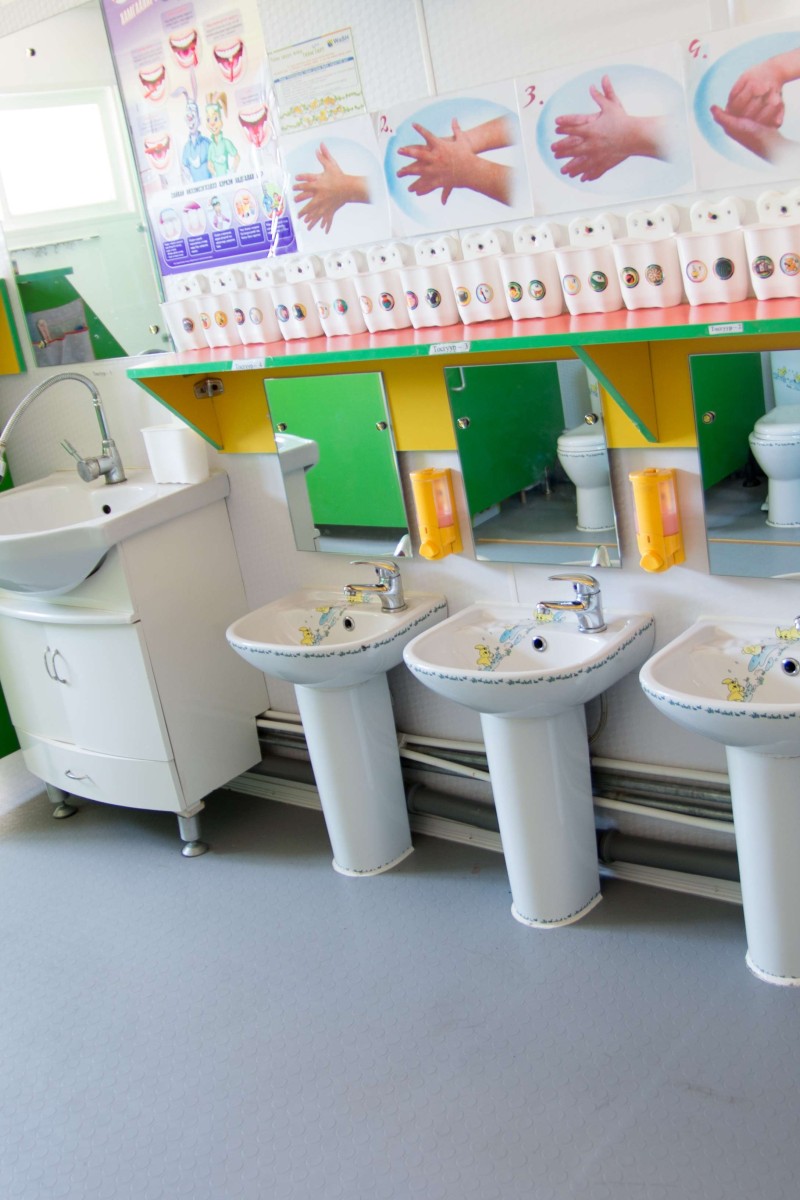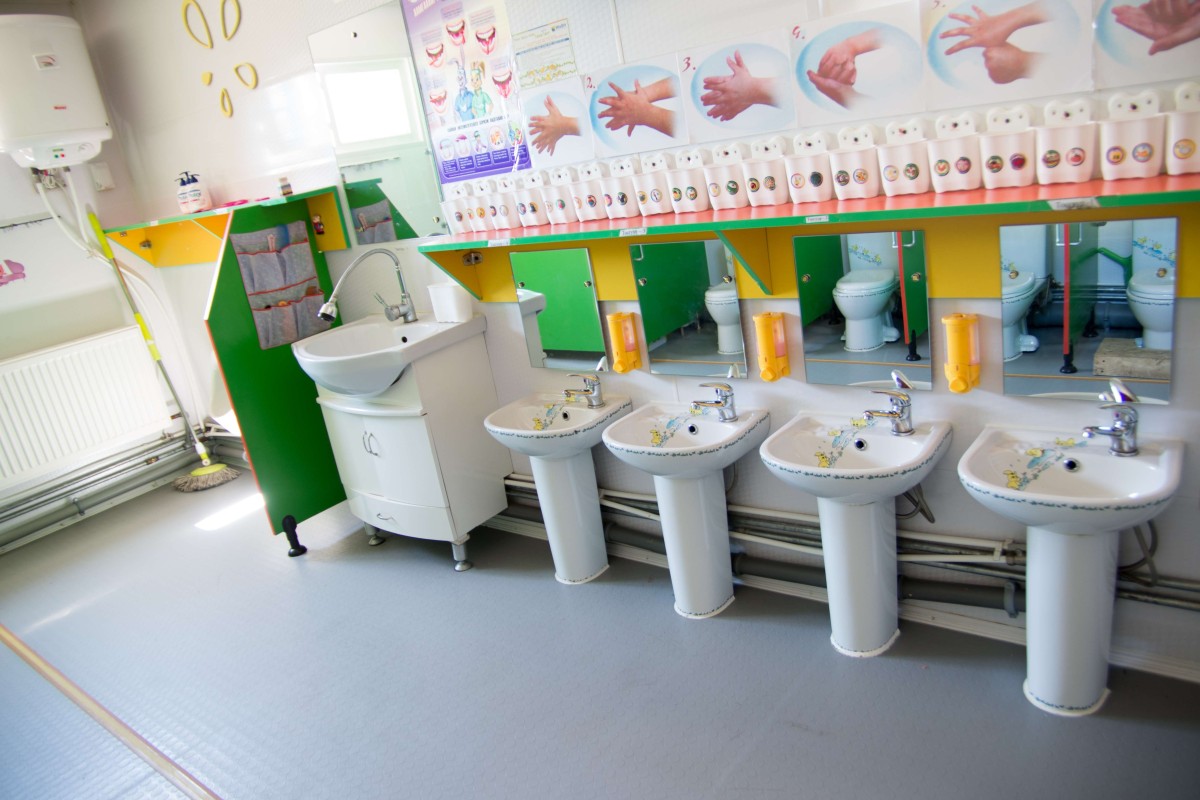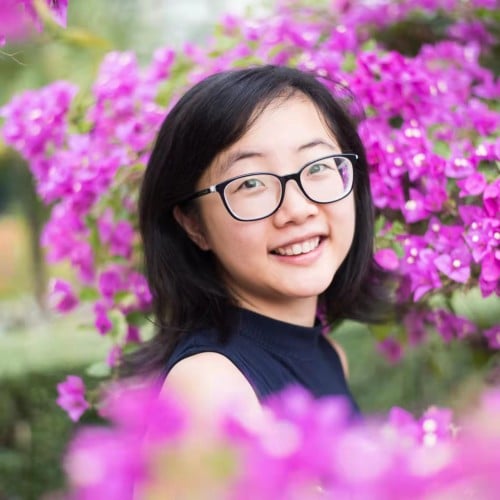
Unicef Hong Kong’s Young Envoys skip to the loo in Mongolia
From clean lavatories to helplines offering support, Unicef is trying to improve young lives in Mongolia
 Something as simple as a clean toilet can have a huge impact on a child's life.
Something as simple as a clean toilet can have a huge impact on a child's life.The first place that Unicef Hong Kong’s Young Envoys visited on their trip to Mongolia was a kindergarten bathroom. It is what’s known as a container toilet – a very clean, odour-free, and comfortable bathroom. So clean, in fact, that Andy Wong Ho-chi, a Form Four student in La Salle College, said: “When we were first led into that room, I wasn’t even aware it was a toilet!”
His teammate, Jenny Wong Tin-yan, a Form Six student in Tuen Mun Government Secondary School wasn’t so easily fooled, and wondered: “Why are we all standing in a cramped toilet?”
The students soon found out that Kindergarten 123 in Nalaikh district of Ulaanbaatar is one of the places where Unicef Mongolia has been working on the Water, Sanitation and Hygiene (Wash) programme.
The kindergarten, which was founded in 1957, now hosts 54 children, but a toilet of their own is very new. Before 2013, the children had to use a public toilet down the street. During the freezing Mongolian winters, that meant having to put on warm clothes to handle the minus 30 degrees Celsius weather. They would to use the toilet as fast as possible, before rushing back to the classrooms to warm up.
But three years ago, Unicef Mongolia collaborated with the kindergarten to build a container toilet with heating, so children no longer need to get dressed for a blizzard, just to use the bathroom. Inside the toilet – in which the 24 Hong Kong teenagers could barely fit – are four stalls, four sinks and two urinals, all in mini sizes, designed for preschoolers.
When the container toilet was first completed, the children were very happy. “Those who study on the upper floors went downstairs on a ‘tour’ and they didn’t want to leave the toilet,” said Dolgorsuren Dorj, director of the kindergarten.
“We take it for granted to have toilets – tidy toilets – and clean water [in Hong Kong], so I was touched that a toilet would bring these children so much joy,” says Jenny.
Building a container toilet is not cheap. It costs US$15,000 to build one unit, says Unicef’s Wash expert Batnasan Nyamsuren, but “every child needs clean water and sanitation to realise their rights and reach their full potential”, so it’s worth it to improve the health and education of children.
Unicef’s Wash programme also covers other kindergartens in the district. After the implementation, coverage of preschool age children in the area went from less than 40 per cent to 70 per cent.
Unicef also helps to establish mobile kindergartens in traditional Mongolian gers, or tents, to bring early childhood education closer to the nomadic families. But clean toilets and mobile education are only some of the ways the organisation helps children in Mongolia.
Corporal punishment is very common in the country, affecting 47 per cent of children aged one to 14, according to a national survey in 2013. But there was no legal framework to protect children from violence until earlier this year. Unicef Mongolia has been working with the government for the past four years in drafting the country’s first child protection law, which prohibits physical and humiliating punishment of children in all settings.
Children who face corporal punishment can also call a national helpline, and social workers and even police would be sent to help. Hong Kong’s Young Envoys visited the 24/7 child helpline 108, which has been running since June 2014, to see how it works.
The helpline has 22 operators, all of whom were trained in school as psychologists or social workers. Unicef helps train the operators, who answer 300 calls a day in summer and 400 to 600 calls a day during academic years.
Most children call for information, counselling services and advice on family relationships and friendships. Sadly, though, one in 63 calls are related to violence.
And not all the children who call have the courage to share their troubles. “Sometimes children call but they don’t speak,” says senior operator and child protection specialist Oinbayar Galsanjamis. “They don’t find people they’re talking to for the first time trustworthy. Such a call is considered a priority, as the caller could be in danger.”
Galsanjamis explains: “Our top policy is to never hang up. You need to get the words out of their mouths, to talk to them, to try to start a connection. Instead of asking ‘why are you crying?’, we are trained to say things like ‘I’m listening’ and ‘feel free to talk to me’.”
Jenny was impressed by the power of listening. “Everyone has a pair of ears, but we never realise how much they can help,” she says. “But just being a good listener can help ease people’s worries.”
The Young Envoys learned a lot during their five-day trip to Mongolia. Form Six student Jessica Wong Ka-kwan, from Maryknoll Convent School, says it helped a lot with her critical thinking skills, as Unicef staff pushed them to raise questions everywhere they went. “Growing up, I was never a fan of challenging someone, but [on this trip] I learned to ask questions, and realised that the more you ask, the more you’ll be able to learn,” she says.
Andy said it helped him see a bigger picture of the situation of Mongolia, one that isn’t shown in Liberal Studies, where “it’s only a page in textbook. But coming here showed me the real situation in the country,” he says. “Going back to Hong Kong, I will pay more attention to the real challenges facing society, and not limit my understanding to what is taught in school.”
Want to get involved?
Unicef Hong Kong is now taking applications for next year’s Young Envoys. If you are a full-time secondary school student between 12 and 18 years old, go here to find out how to take part.
